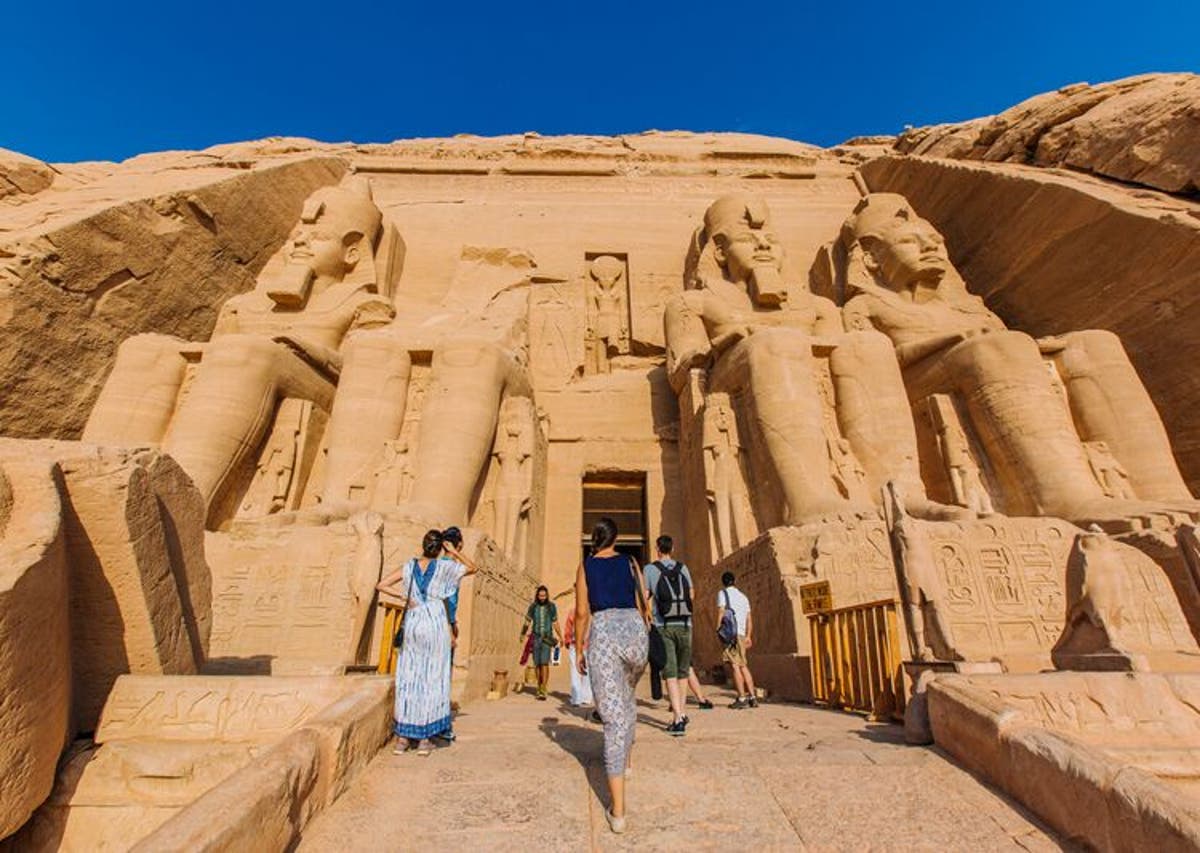The Middle East has long held appeal and intrigue for British holidaymakers. The relative proximity to the UK, rich cultural offerings, and well developed tourist infrastructure have allowed countries including Egypt and Jordan – or further afield in the UAE, Bahrain and Oman – to carve out a status as holiday hotspots.
Yet when upheaval occurs, internally or across borders, the impact on tourism can be significant.
The recent escalation of conflict between Israel and Iran as well as the continuing Israeli military presence in Gaza has created some anxiety among British travellers who have booked or are considering booking holidays to the region.
Concerns about the proximity of strikes in Gaza, Lebanon and Israel, particularly in relation to neighbours Jordan and Egypt, has raised questions about safety. Plus, there’s the understandable unease of kicking back and basking in the sunshine, while tragedy occurs just miles away.
Following Israeli strikes on Lebanon and retaliation from Iran at the end of September, airlines including Wizz and British Airways temporarily suspended flights to Jordan, and some tour operators appeared to be getting jumpy, going as far as to cancel holidays – US operator Colette has scrapped its itineraries that feature Jordan until through October 31.
Most UK tour companies continued to operate as usual, with no reason to suspend trips, but many have noted a drop in bookings in the past year.
Intrepid Travel recorded a dip in travel to the Middle East immediately after 7 October 2023 – particularly to Jordan and, to a lesser extent, Egypt – and G Adventures has also reduced booking figures for Jordan. The Jordan Tourist Board reported that travellers from the UK decreased by 23.7 per cent, with 27,451 visitors by the end of September 2024, compared to 35,989 during the same period in 2023.
Philip Breckner of Discover Egypt shared a similar story, with a noticeable slump in bookings to Egypt following the Hamas attacks in Israel on October 2023 and bombing of Gaza.
It is a relatively familiar pattern. This is a region that has in the past grappled with conflict, terrorist attacks, internal political tensions And when instability occurs, tourists get spooked.
One of the most devastating examples was in 1997, when 62 people, mostly foreign tourists, were violently killed in a terrorist attack at Luxor. For years, many of Egypts hotels sat empty and resorts deserted. More recently, the Arab Spring in 2011 resulted in a sharp decrease in travel to the Middle East and North Africa, even among countries that weren’t directly involved. For four years from 2015, UK airlines were banned from flying to the key Egyptian resort of Sharm el-Sheikh. The British ban was as a result of the bombing of a Russian passenger jet departing from the resort’s airport, killing all 224 people on board.

Apprehension about travel is not a problem unique to the Middle East – image is crucial for any country with a tourism industry, and the perception of safety is crucial.
Most important to note today is that travel to popular tourist areas of both Egypt and Jordan – as well as the holiday destinations in the UAE, Oman and Qatar – is generally considered safe. Foreign Office travel advisories exist in certain areas (for example, the Jordan-Syria border and North Sinai in Egypt), but these are all significant distances from holiday destinations like Sharm el-Sheikh, Hurghada, Luxor, Aswan, Petra or Wadi Rum.
Probably the greatest concern for travellers to Jordan should be flight disruption – Jordanian airspace was temporarily closed late on 1 October and subsequently reopened – but flights now appear to be running as usual.
Secondly, it’s important to remember that certain countries depend on tourism. While Gulf states have the resources to weather a dip in visitor numbers, in Jordan and Egypt the impact could be felt more sorely.
A country heavily reliant on the Suez Canal, Egypt’s economy was particularly hard hit by rebel Houthi attacks on commercial shipping in the Red Sea, making tourism an even more important source of revenue.
According to UN Tourism, between 4 and 5 per cent of the employed population in Jordan last year 2023 worked jobs in the tourism industry, while the World Travel and Tourism Council found that one in 12 jobs across Egypt were supported by the sector this year.
“Tourism is a vital source of income in both countries and many people rely on it for their livelihood,” says Zina Bencheikh, managing director EMEA at Intrepid Travel. “The last year has been very tough for our local teams.
On the ground in Jordan, it’s very much business as usual. David Prokic who arrived in the country shortly after the airspace was reopened noted: “Everything is fine, I don’t feel threatened at all. People are carrying on as usual and as welcoming as they always are.”
Among tour operators there is a general sense of optimism. At Discover Egypt, Breckner acknowledged that the country has grappled with slumps in tourism but it always bounces back. Bencheikh noted that Intrepid is continuing to invest in Jordan and recently opened a new office in Amman, while G Adventures just announced Jordan will host their next GX World Community Tourism Summit in September 2025.
So the short answer is no, don’t cancel your Jordan or Egypt holiday. Indeed, now may be the time to visit. Travel is one of the best ways to support a country or region, and take home a true representation of its people, landscape and culture. Bencheikh adds: “The best thing people can do to help is visit when they feel comfortable to do so – if not now then in the future.”
Listen to Philip Breckner of Discover Egypt talking to Simon Calder on his daily travel podcast











